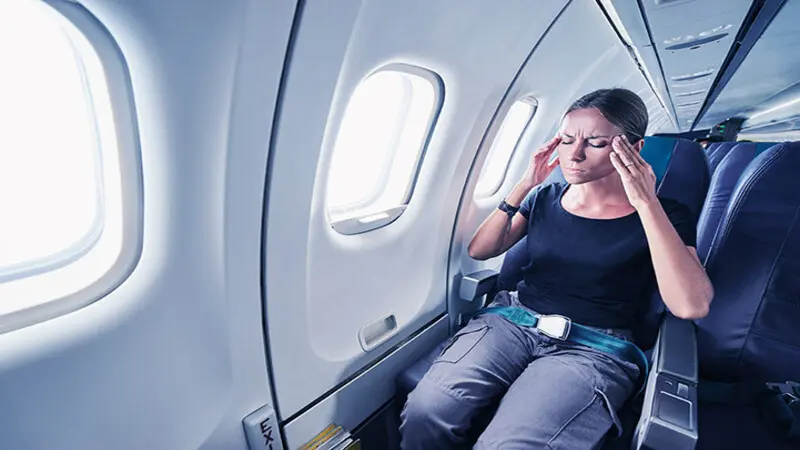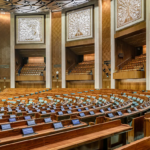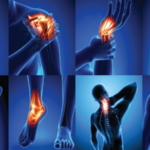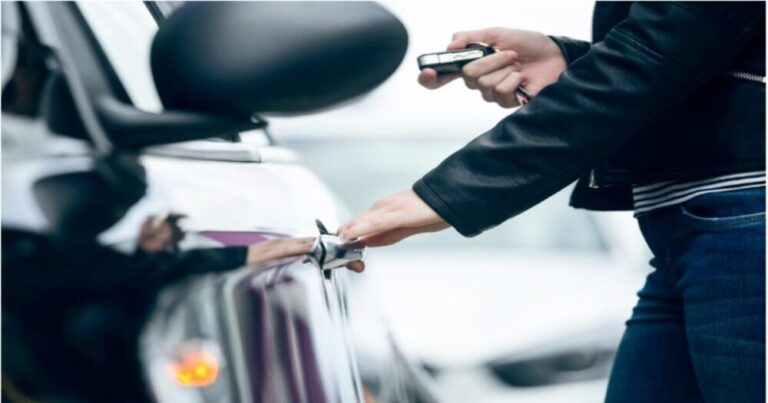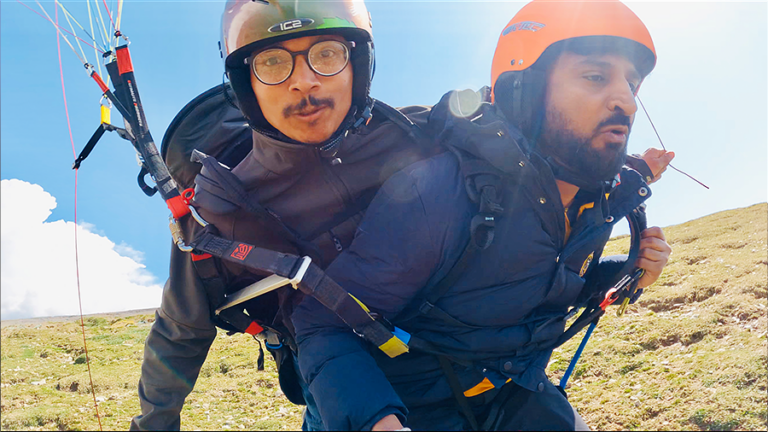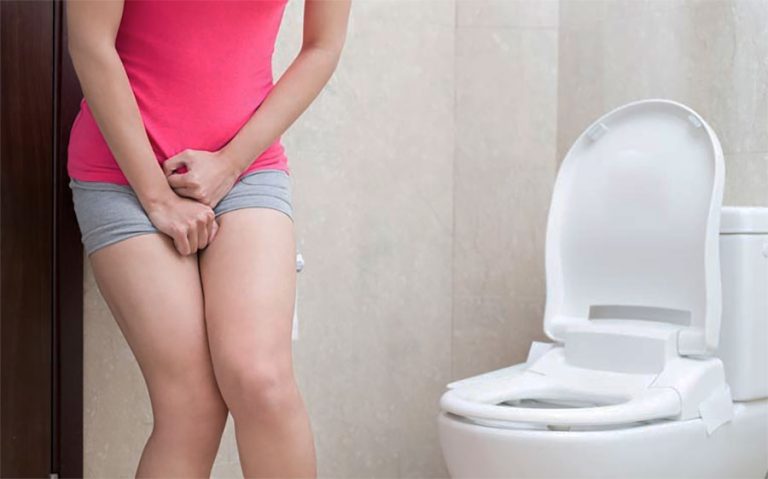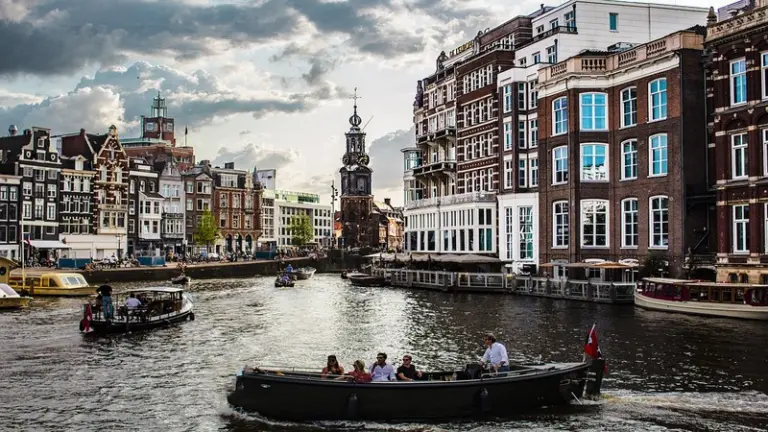Traveling can be an exciting and enriching experience, providing opportunities for exploration, adventure, and personal growth. However, for some individuals, the thought of traveling triggers feelings of anxiety and fear. Travel anxiety is a specific type of anxiety disorder that manifests in anticipation of or during travel. It can have a significant impact on a person’s ability to enjoy and engage in travel-related activities.
This article aims to explore travel anxiety, its causes, symptoms, and strategies for coping with and overcoming this condition
Understanding Travel Anxiety
This anxiety, also known as travel phobia or hodophobia, is a psychological condition characterized by intense fear, worry, or panic associated with traveling. It can manifest in various forms, ranging from mild unease to severe panic attacks. The anxiety may be specific to certain modes of transportation (e.g., flying, driving, or public transportation) or related to the entire travel experience. Travel anxiety can be triggered by a range of factors, including fear of flying, fear of unfamiliar environments, fear of crowded spaces, concerns about safety or health, or previous negative travel experiences.
Causes of Travel Anxiety:
- Fear of the Unknown: Traveling often involves stepping out of one’s comfort zone and encountering new and unfamiliar environments, cultures, and people. The fear of the unknown can trigger anxiety and uncertainty about potential challenges or risks.
- Previous Negative Experiences: Individuals who have had traumatic or distressing travel experiences, such as accidents, natural disasters, or incidents of violence, may develop travel anxiety as a result of the lingering emotional impact.
- Fear of Flying: Aerophobia, or fear of flying, is a common form of travel anxiety. It can stem from a fear of heights, loss of control, turbulence, or catastrophic thinking about plane crashes.
- Safety and Security Concerns: Heightened concerns about safety and security, particularly in unfamiliar or foreign environments, can contribute to travel anxiety. News reports of terrorism, crime, or health emergencies can amplify these concerns.
- Social Anxiety: Individuals with social anxiety may experience travel anxiety due to the anticipation of interacting with unfamiliar people, navigating social situations, or feeling judged or scrutinized.
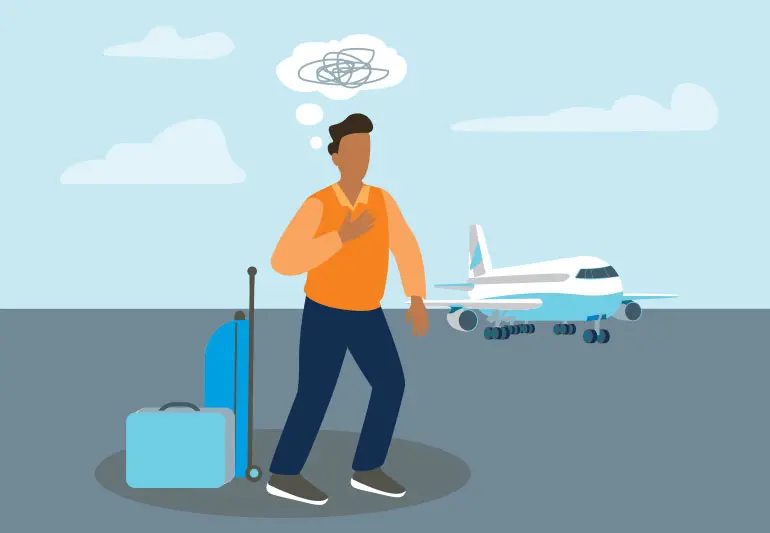
Symptoms of Travel Anxiety:
The symptoms of this anxiety can vary from person to person but may include:
- Intense fear or panic attacks before or during travel.
- Increased heart rate, sweating, trembling, or shortness of breath.
- Nausea, dizziness, or stomach discomfort.
- Feeling overwhelmed, agitated, or restless.
- Avoidance of travel-related activities or places.
- Difficulty concentrating or making decisions.
- Excessive worry or obsessive thoughts about potential travel-related risks or negative outcomes.
- Sleep disturbances, such as insomnia or nightmares, related to travel concerns.
Coping Strategies for Travel Anxiety:
- Gradual Exposure: Gradual exposure to travel-related activities can help desensitize individuals to their fears. Start with smaller trips or practice sessions to build confidence gradually.
- Planning and Preparation: Careful planning and preparation can alleviate anxiety. Research destinations, create detailed itineraries, and familiarize yourself with the logistics of transportation and accommodations.
- Seek Support: Talk to friends, family, or a mental health professional about your travel anxiety. They can provide understanding, support, and practical strategies to manage anxiety.
- Relaxation Techniques: Learn and practice relaxation techniques such as deep breathing, progressive muscle relaxation, or meditation to reduce anxiety symptoms.
- Cognitive-Behavioral Therapy (CBT): CBT is an effective therapeutic approach for treating anxiety disorders. It helps identify and challenge negative thoughts and beliefs, develop coping strategies, and gradually confront fears.
- Distraction Techniques: Engage in activities that distract your mind from anxiety, such as listening to music, reading, or watching movies during travel.
- Self-Care: Prioritize self-care activities, including exercise, proper nutrition, and adequate sleep, to promote overall well-being and reduce anxiety.
- Utilize Technology and Apps: Numerous smartphone apps provide relaxation exercises, breathing techniques, or guided meditations that can be useful for managing travel anxiety.
- Medication: In severe cases, medication prescribed by a healthcare professional may be considered to alleviate symptoms of travel anxiety. However, medication should be discussed with a medical professional and used as part of a comprehensive treatment plan.

It can significantly impact individuals’ ability to enjoy and engage in travel experiences. However, with awareness, understanding, and the implementation of coping strategies, individuals can effectively manage and overcome travel anxiety. It is important to seek support, practice self-care, utilize relaxation techniques, and consider professional help when needed. By addressing travel anxiety, individuals can embrace the opportunities that travel offers and create meaningful experiences while expanding their horizons.
(Disclaimer: The information given here is based on general information. Before adopting it, definitely take medical advice. THE MONK does not confirm this.)

